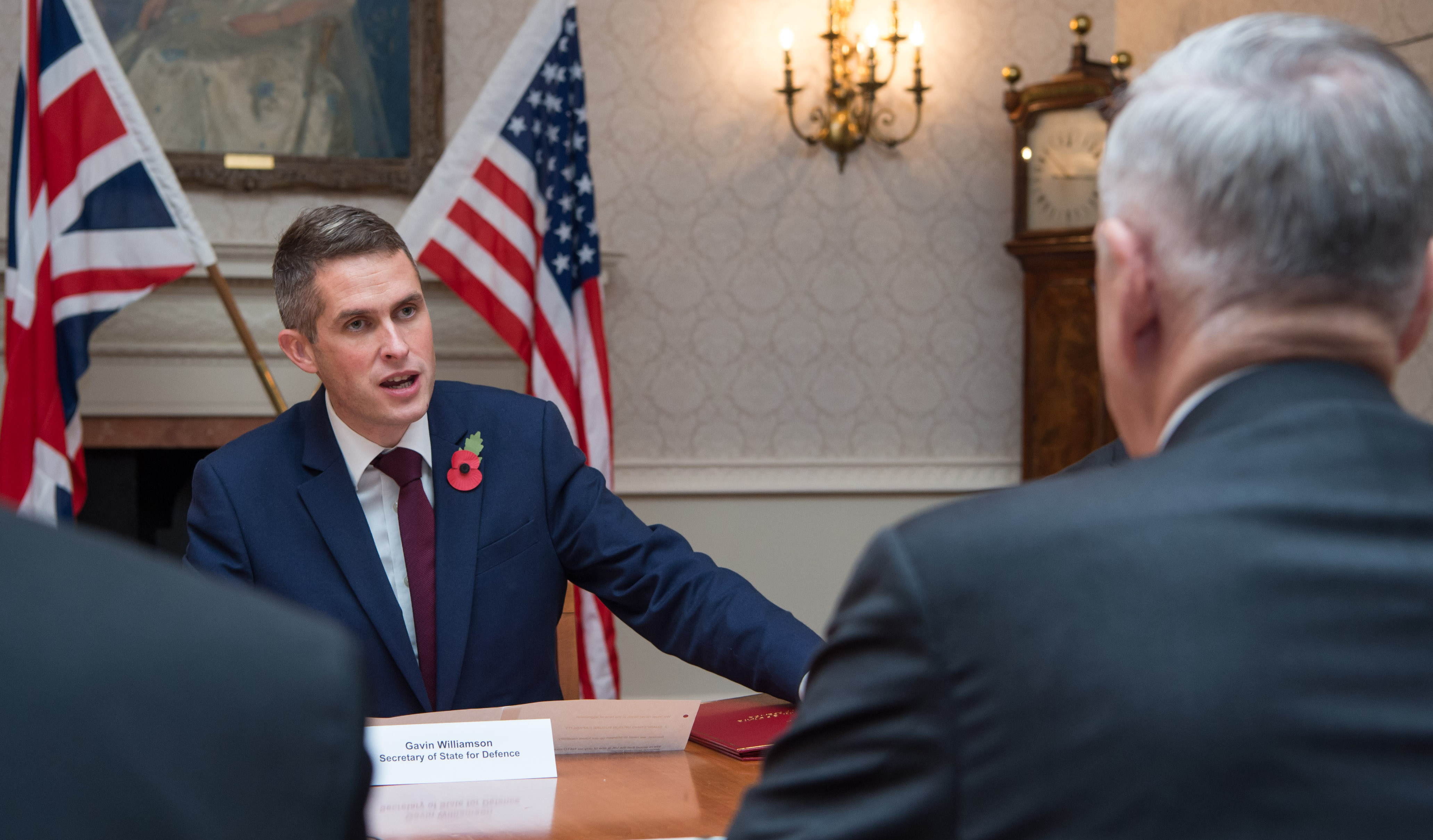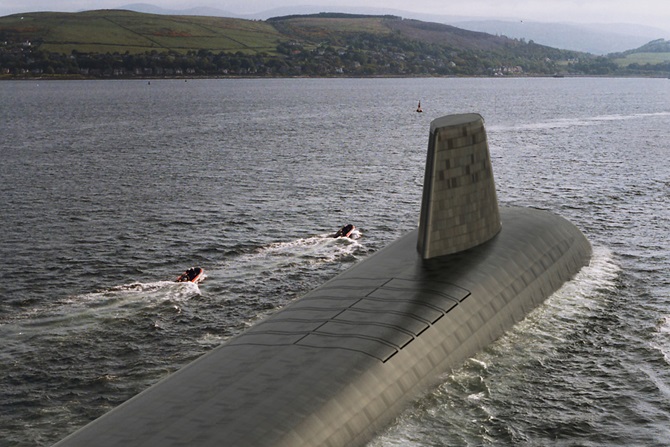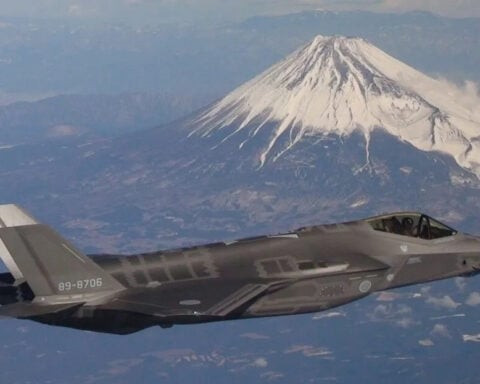
The United Kingdom is set to its maintain its position as a global power by sea power investments in its new class of Dreadnought nuclear ballistic missile submarine and its new class of frigates, the U.K. Secretary of State for Defence said on Tuesday.
The U.K. has a commitment to act when its interests or its allies’ are at stake, and it is investing in platforms to meet those missions on the high-end of conflict to the low said Gavin Williamson speaking at The Atlantic Council.
“You need to have that blend of exquisite capability” found in the Queen Elizabeth aircraft carrier, soon to be joined by Prince of Wales, the Type 45 destroyer and other high-end weapons systems including the F-35 strike fighter; “and we need to have mass in our air, land and sea forces,” he said in answer to a question at the Washington, D.C., appearance.
Williamson, saying even with London’s imminent departure from the European Union, Great Britain is not pulling back from neither its commitments to the North Atlantic Treaty Organization nor its role in the world. He termed Great Britain’s role on the continent as the glue that attracts other nations there to commit more resources to their own security and to the alliance to counter an aggressive Russia from the northern reaches of Norway to the Black Sea.
On a broader international front, by spending on a variety of platforms, Great Britain plays a critical role in preserving international norms. “The Royal Navy was the first to enforce U.N. sanctions against North Korea” by intercepting its ships and other vessels suspected of trying to trade with Pyongyang. The Security Council sanctions were imposed in response to North Korea’s testing of nuclear weapons and longer-range ballistic missiles.
Great Britain “needs the ability to have presence around the globe.” He added, “Soft power is important” in having a global presence, but his task is “making sure we get the hard power right” to meet different challenges “wherever they arise at a moment’s notice.”
That hard power now, Williamson said, means, providing airlift to the French in Mali for their operations against terrorists; to operating from overseas naval bases including Bahrain, Singapore, Diego Garcia and Cyprus; supporting land operations against the Islamic State in Syria and Iraq; advising Afghan security forces in their struggle against the Taliban; and training security forces in Africa.
“Please never, never underestimate my nation,” he said in answer to another question.
That also includes Great Britain’s technology for the future, he said.
“The U.K. has always brought something special to the table” from radar and the turbo jet data that it shared with the United States in World War II to today’s sharing of nuclear data in the Dreadnought/Ohio class ballistic missile sub programs.
“The next phase is all about delivery” in Britain’s modernization strategy to meet the new threats coming from nation states, like Russia and China. Noting that in 2010 when London reassessed its defense-spending program, it downplayed that kind of challenge. But the Kremlin’s aggression against Ukraine, including the seizure of Crimea in 2014, and its use of chemical weapons in Britain in an attempted assassination attempt has prompted a top-to-bottom review of its security needs — including cyber for itself and NATO.

At the same time “we have our eyes wide open” when it comes to China’s assertiveness, particularly in the Indo-Pacific. Its “militarization of artificial features of the South China Sea is a backward step and puts them on the wrong side of the line of what people expect of great powers.”
Williamson said that means respect for the rule of law, not threatening force or using force to have its way in the territorial disputes that mark that region.
When asked about the implication for London with the United States walking away from the Iran nuclear deal and Monday’s re-imposition of sanctions, he said Washington needed to resume talks with the other signatories to find a way forward.
Williamson said he is looking forward to 2021 when “the United States Marine Corps [will] embark a fifth generation fighter flying from fifth generation carrier.” The reference was to a squadron of Marine F-35B’s operating from carrier Queen Elizabeth.
Saying London was “your most reliable partner” internationally, he reminded the audience that defense equipment buying “is a two-way street” and the United States could do more spending in Great Britain, a nation that thousands of Americans in its security programs.





